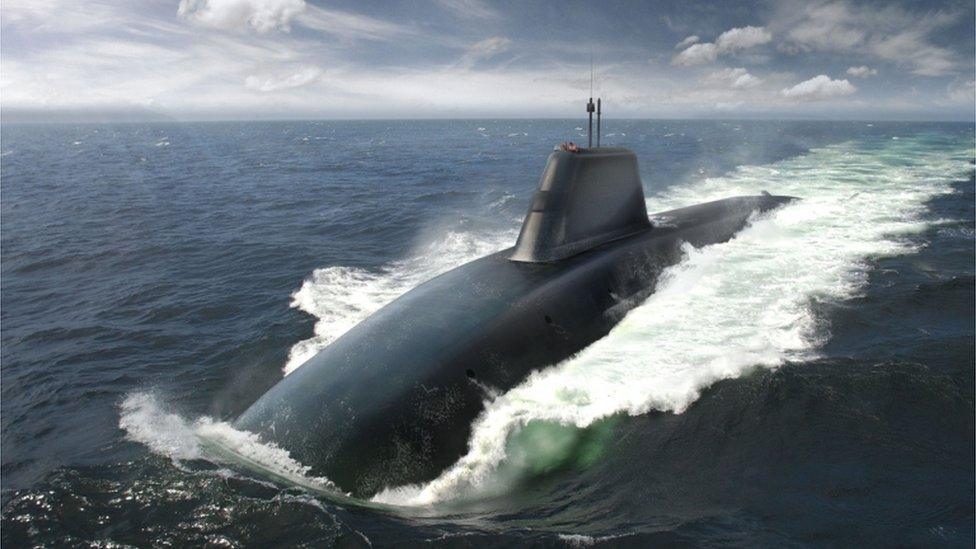Scottish Labour conference 2015: The sunshine of socialism
- Published

Kezia Dugdale and Jeremy Corbyn were on stage together at the Scottish Labour Party conference in Perth
At the Labour conference, among other elements, a day to commemorate, a day to reward. Not, to be clear, that this was purely or even faintly an occasion dominated by congratulations and nostalgia.
Indeed, far from it. Even the awards spoke obliquely of the contemporary problems the party faces. Edinburgh South Constituency Labour Party was honoured for its efforts. Yes, that CLP. The one that returned Labour's sole MP north of the Border in May.
Presenting those awards, Kezia Dugdale emphasised the D word. Nobody, she said, was in denial about the scale of Labour's defeat in May or the concomitant challenge of the Holyrood elections next year.
Jeremy Corbyn says the proposed changes to give the Scottish Labour Party greater autonomy is a response to the Scotland Bill
But, still, there was a slight sense of a party summoning up its history, its origins, with delegates drawing these elements around them like a warm cloak to ward off the inclement political weather.
They staged a mini-drama, with party members quoting the sayings of James Keir Hardie, Labour's founder who died a century ago. The talk was of solidarity and socialism.
Later the conference rewarded another delegate, a first time speaker at this Scottish gathering, with a standing ovation. But then Jeremy Corbyn is the leader of the party.
Like Hardie - whom he quoted - the talk was of solidarity, both global and domestic. The talk was of Socialism. The talk was of an explicitly Left-wing offer to challenge the Tories and counter the SNP offer.
In the hall, delegates - mostly - loved it. It was as if their intrinsic enthusiasms were stirred rather than suppressed as they had been in relatively recent times.
Scottish Labour leader Kezia Dugdale says any money saved by not renewing Trident "can't be spent 12 ways" unlike the position set out by the SNP
Yes, they had felt obliged to applaud Tony Blair's New Labour pronouncements. After all, the guy had rather a habit of winning elections. They tolerated a lot in order to achieve that prize through him.
But they - or, more precisely, those who were here - really prefer the old-time messages: support the unions, protect jobs, defend welfare, reach out to Socialists round the world.
Jeremy Corbyn gave them - this defeated, subdued party - what they wanted. Perhaps what they needed at this stage. He spoke of Allende and Chile. He spoke of Mandela and apartheid. He offered "the sunshine of Socialism", a phrase borrowed from Keir Hardie.
What of the economy?
His predecessor, Ed Miliband, landed in trouble because he failed to mention the deficit in a conference speech. Jeremy Corbyn scarcely mentioned the economy.
Or, more precisely, his economic references were entirely about redistribution and poverty. Not about business or economic growth. It was left to the Shadow Scottish Secretary Ian Murray to make the point - in a thoughtful speech - that public spending requires a buoyant economy and business sector.
But the audience seemed unconcerned at the economic dog that declined to bark in Mr Corbyn's speech. They loved his insistence that the Scottish party will have relative autonomy over their own affairs, while remaining in the wider Labour family. To be clear, his speech went down very well in the hall.
In which respect, there was another interesting development today. Members were asked to select topics to debate on Sunday. They voted to give top billing to the issue of Trident.
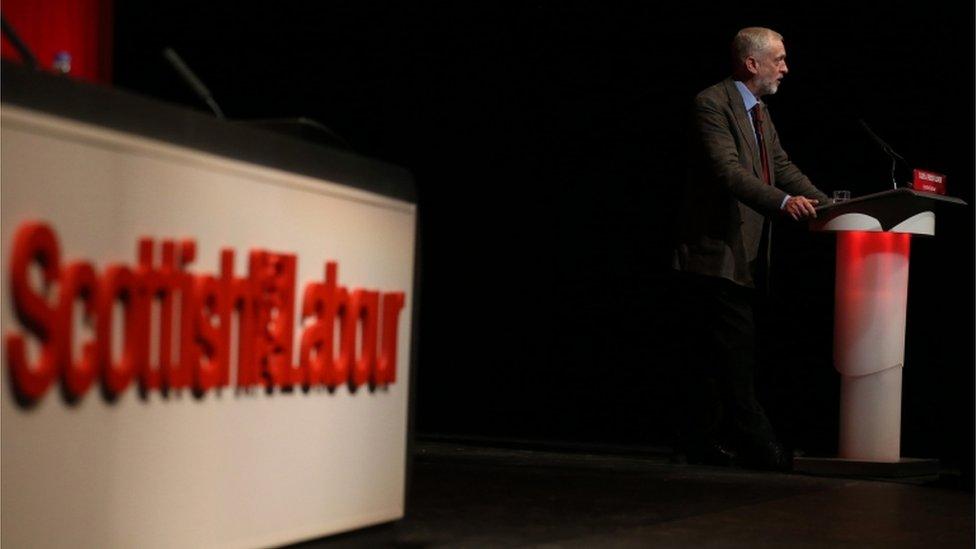
UK Labour leader Jeremy Corbyn spoke of Allende and Chile
It is plainly the expectation that the conference will vote to oppose Trident's renewal. Both Kezia Dugdale and Jeremy Corbyn emphasised that any money saved from scrapping Trident would be used to help redeploy workers on the Clyde.
But, I asked Ms Dugdale in a webcast interview, is this real policy autonomy for the Scottish party? I pointed out that Scottish Labour had routinely voted against Trident in the 1980s and 1990s, only for that verdict to be overturned by the UK leadership.
Her answer was that she was responsible for autonomous Scottish policy. Any disputes would be resolved through a reconciliation mechanism: details of which are currently under scrutiny.
This debate, of course, already reaches beyond Scotland. Left-supporting delegates plainly indicated that they would use a Scottish vote against Trident - if it occurs - as a lever to apply pressure to the party across the UK.
Indeed, one senior figure recalled that the abolition of Class Four by Tony Blair had first been carried by the Scottish party conference, prior to a UK vote. Ditto Trident, I was told.
- Published30 October 2015
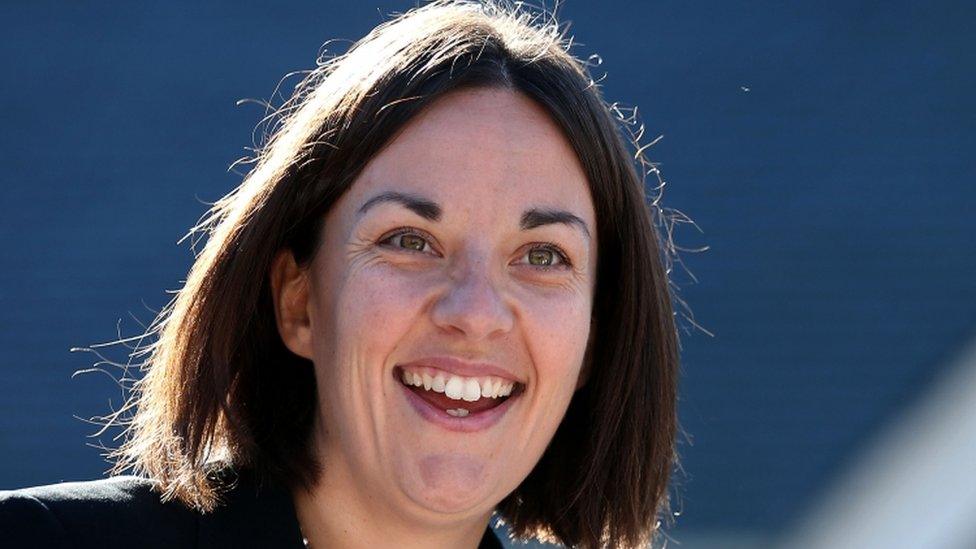
- Published30 October 2015
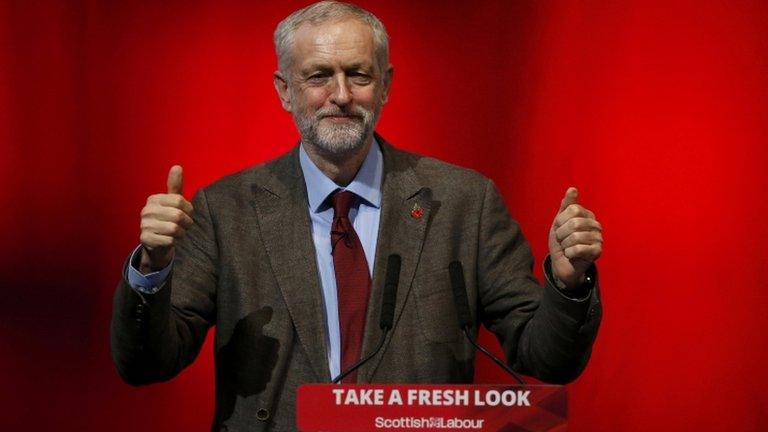
- Published30 October 2015
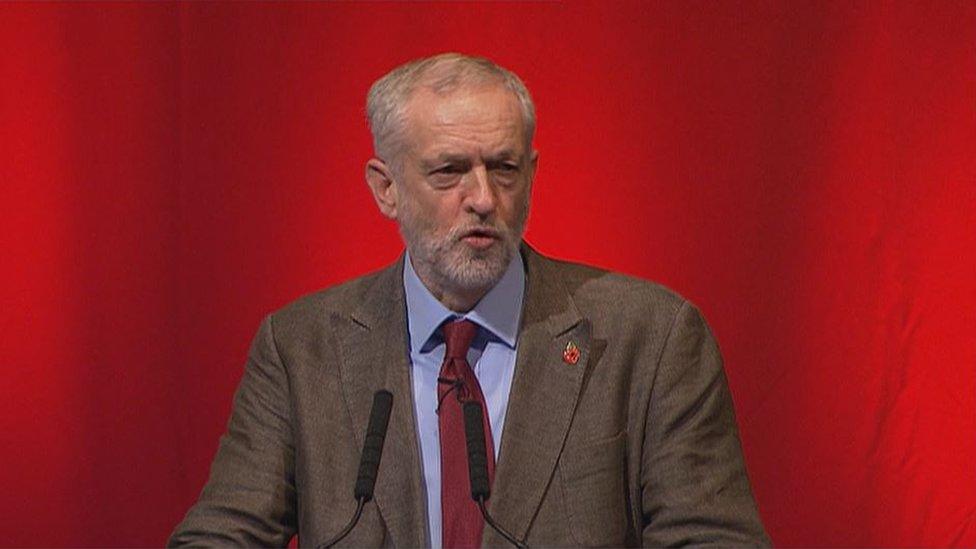
- Published30 October 2015
